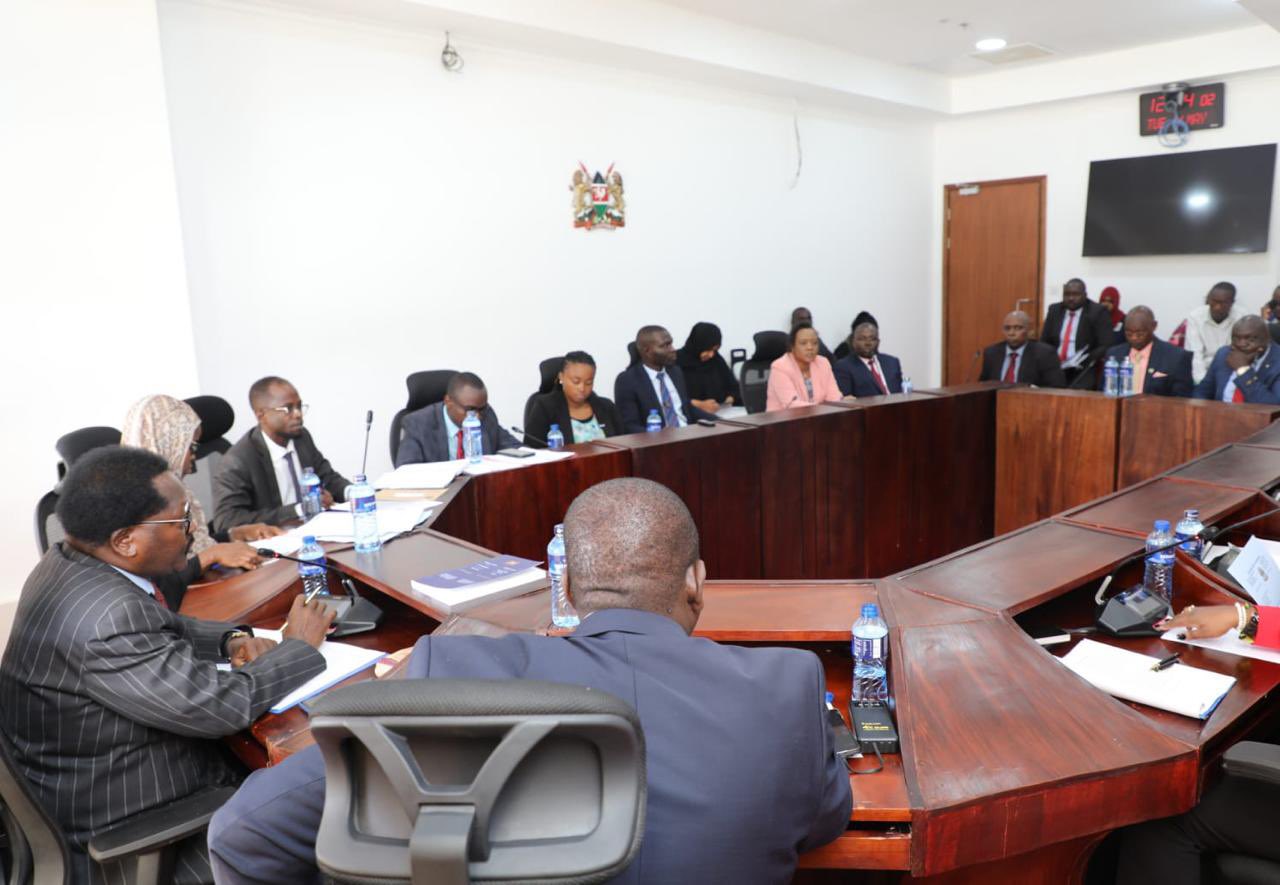Senate committee engages stakeholders over concerns on registration of teachers with disabilities

The committee was probing claims that Kenya Union of Special Needs Education Teachers has been registering teachers with disabilities without their consent.
The Senate Standing Committee on Labour and Social Welfare has held discussions with various stakeholders to address concerns surrounding the registration of teachers with disabilities by
the Kenya Union of Special Needs Education Teachers (KUSNET).
More To Read
- Kenya’s marginalised groups locked out of clean energy, new report warns
- Less than 40 per cent of counties cover health costs for persons with disabilities - report
- Only 4 per cent of public institutions meet disability hiring quota - survey
- MPs push for faster completion of disability equipment factory to improve access to learning materials
- Senators grill Mombasa governor over poor accessibility to public buildings for PWDs
- Trapped in Gaza: Palestinians with disabilities cannot reach aid
The committee chaired by Senator Crystal Asige engaged with representatives from the Teachers Service Commission, KUSNET, and affected teachers to deliberate on the issues.
The Standing Committee on Labour and Social Welfare deals with manpower and human resource planning. It addresses gender issues and cultural affairs.
The committee also handles social welfare and youth matters. Additionally, it oversees the National Youth Service and children's welfare.
It is also involved in matters concerning national heritage, betting, lotteries, sports, public entertainment, amenities, and recreation.
During a presentation to the committee on Tuesday, KUSNET acknowledged dissatisfaction expressed by a group of visually impaired teachers across the country.
The committee was probing claims that KUSNET has been registering teachers with disabilities without their consent.
Senator Asige, in April, sought a statement from the committee, on the floor of the House, demanding a list of all teachers with disabilities currently employed by the Teachers Service Commission, specifying their trade union affiliation.
The union clarified that there are educators with disabilities, who are not affiliated with KUSNET and primarily teach in mainstream schools. The upper house was informed that most of the
members of the association teach at special needs institutions.
According to statements presented to the committee at parliament buildings, KUSNET currently boasts a membership of 52 registered individuals.
Very pleased at how thoroughly the Labour And Social Protection committee went into probing the union deductions by @TSC_KE & KUSNET from the salaries of teachers with disabilities without consent. I thank my committee for supporting my constituents, giving them a just outcome 🫡 https://t.co/zgAj5WAeOV
— Crystal Asige (@CrystalAsige) May 14, 2024
Around 5,597 teachers with disabilities reportedly contribute agency fees to the organisation.
Collective Bargaining Agreement
The committee has requested KUSNET to furnish a copy of its Collective Bargaining Agreement (CBA) for review.
Other Topics To Read
- Headlines
- National
- National Council for Persons with Disabilities
- Persons living with disabilities
- People living with disabilities
- Kenya Union of Special Needs Education Teachers
- People With Disabilities
- Senate committee engages stakeholders over concerns on registration of teachers with disabilities
- News
It has also called on the Ministry of Education to increase capitation funds for the special needs.
Secretary General (SG) James Torome said students with special needs face a myriad of challenges pointing out that more resources should therefore be channelled to special needs
education.
Torome said the union's priority is to improve service delivery for special needs teachers and ensure support for special needs students.
A recent survey by So They Can, an Australian NGO Cooperation and Government survey indicated that only about 250,000 children with special needs and disabilities are enrolled in
education institutions, even though the prevalence rate in Kenya is 11.4 per cent among children aged between 3 and 21 years old.
Among all children with disabilities, 51.2 per cent were males and 48.8 per cent were females, indicating a relatively even distribution of disabilities among male and female children.
Additionally, 72.6 per cent of children with disabilities were living in rural areas, while 27.4 per cent were living in urban areas, indicating a higher prevalence of disability in rural areas.
The survey also highlighted the specific types of disabilities and their prevalence, such as visual impairment, physical disability, intellectual disability, hearing impairment, speech and language
disorders, self-care, and deafblindness.
The parliamentary committee meeting, which aimed to address the necessity for clarity and inclusivity within teacher organizations, particularly emphasising representation and advocacy
for educators with disabilities across the nation.
“There is a need for the government to look into the plight of blind students who use Braille that is too expensive to afford,” said the Secretary-General.
Asige also emphasised the importance of resolving these matters swiftly to ensure equitable representation and support for all educators, especially those facing unique challenges due to
disabilities.
Top Stories Today












































